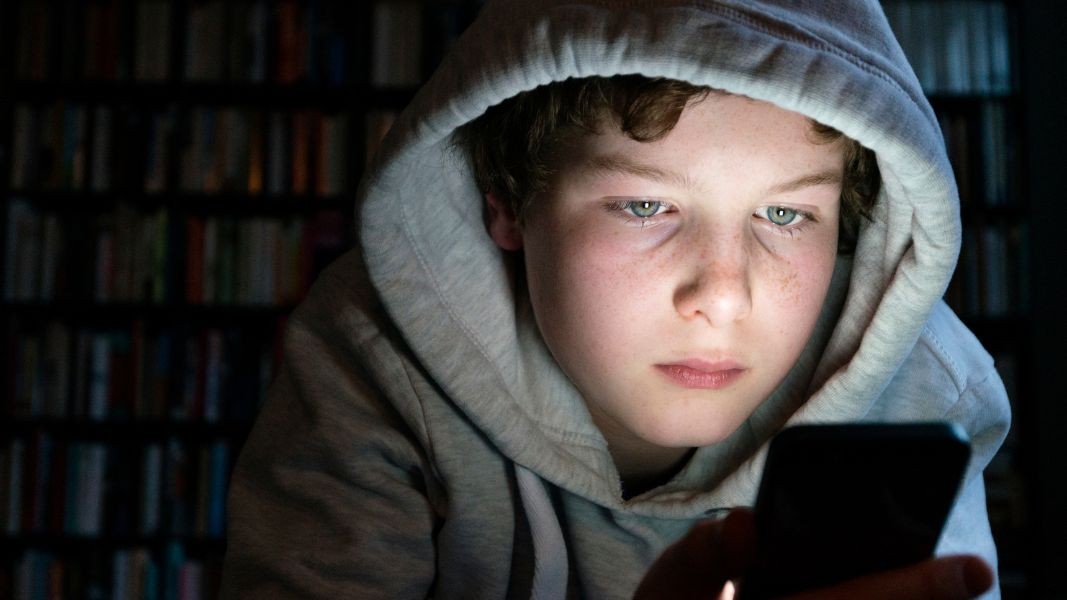96% of Bulgarian children watch TV several hours a day, 83% use a smartphone, indicates a survey conducted by Sova Harris. Just 13% say they read books for pleasure, and their parents are not fully aware of what their children are watching on the internet and on TV, the data show. And that is not the end of it – children start watching television at an average age of 2 years 6 months. The average age at which they start using an electronic device is 5 years 9 months. Children receive their first smartphone at around 8, and only start using a computer later, say the respondents – 1,305 children and 1,535 adults. 73% of the children using a smartphone do so every day, for an average of over 2 hours.
“We can divide the content children watch on the internet in the following way: 75% watch music videos, 60% - TikTok content, 42% - films and TV shows,” Galina Milkova from Sova Harris agency says. Even if parents have set limits on the information and the genres their children have access to, very often there is no adult around when they use an electronic device.
“Our conclusion is that parents do not know well enough what content their children are using – whether they are watching television or playing on their mobile device. In the survey, parents say that the media content their children use is helpful most of all in developing the children’s social skills, followed by their creativity, and the child’s physical activity is lowest down the line. Which means that most parents believe that the media content is actually most damaging to the child’s physical activity,” Galina Milkova says.
The conclusions from another survey, commissioned by the Council for Electronic Media, also show excessive screen time for school-goers. This has a dire effect on their psyche, and on their integration and discipline capacity. 
Believing that media will help children develop emotionally is socially naïve, she says.
“I believe parents should be in the focus of this kind of understanding. What has changed in families is connected precisely with conveying the rules and entering the realm of civilization, because one more thing schools complain of is that rules get broken and the words by persons of authority, adults, have no value for children, and that means there is something in the foundations that is very much impaired,” school psychologist Anet Marinova says. 
That is why it is no accident that the school is burdened with society’s expectation of doing something about what the psychologist calls “the suffering of childhood and adolescence from forms of a social bond pathology”.
Parents need to have a better media literacy and know how to talk to their children about the internet risks, explains psychotherapist Detelina Stamenova:
“It was an unpleasant surprise to find out that 33% of parents use electronic devices to put their children to sleep, and that children use electronic devices before going to bed, i.e. between 8 and 12 PM. That prevents them from going to sleep which, in turn is damaging to all their other abilities.”
The parents of the generation born after the year 2000 need general guidelines like this that will help show them how to minimize the harmful effects of electronic devices on the health of their children, the psychotherapist says.
Interviews by Tsvetomir Tsvetanov, BNR-Vidin
Text by Yoan Kolev
Translated and posted by Milena Daynova
Photos: Pixabay
The Bulgarian Farmers' Union is organizing an exhibition of locally produced dairy and vegetable products in Plovdiv. The event will be held on June 28 and 29 in Lauta Park in the Trakia district of Plovdiv. The aim of the event is to..
Prof. Milena Tsaneva, a leading Bulgarian literary historian and critic, has passed away at 95. Born in Sofia to a literary family—her father, Georgi Tsanev, a critic, and her mother, Penka Tsaneva-Blennika, a poet—she grew up surrounded by poets such..
The third edition of Bulgaria's first Latin festival, Ocho Latin Fest, is taking place on 27 and 28 June in Rotonda Square, Sofia Central Station. The festival is entirely dedicated to Latin American music and its subgenres. Its aim is to promote Latin..
The consulates of a country abroad are usually seen simply as the place where citizens go when they need assistance—whether to obtain documents or resolve..
One of Bulgaria's longest-running summer festivals takes place in Primorsko , a resort town on the Black Sea coast. Over the next three months, Prim..
Croatia advises its nationals to postpone non-essential travel to Serbia Croatia’s Ministry of Foreign Affairs has advised Croatian nationals..

+359 2 9336 661
